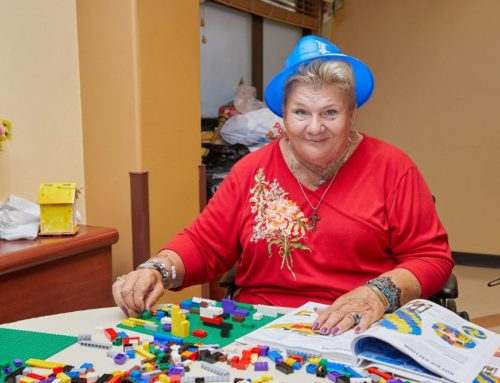Key Steps for Preventing Functional Decline in the Elderly
As individuals age, they begin to experience functional decline, which reduces their ability to care for themselves. Though the effects are often gradual, many people experience more rapid degeneration than others. Preventing functional decline in elderly people is possible with altered lifestyle choices, including eating and sleeping habits.
We, at Fairview Adult Day Care Center in Brooklyn NY, believe that the two most important factors include incorporating regular physical activity into your routine and reducing stress. Fairview offers everything required to prevent the rapid decline of functions in adults and older individuals. These include exercise training to keep the body strong and healthy. We also have therapeutic recreation and mental cognitive activities to boost mind functions and mood.
So, these two factors help to boost body and mind health. For more information on reducing the effects of functional decline, keep reading.

Prevent Functional Decline in the Elderly with These Steps
As humans age, our bodies begin to slow down, and new health issues become more frequent. Though this is normal, certain factors can increase how quickly our functions decline.
One of the most prominent issues is a lack of physical activity, leading to a sedentary lifestyle. When this occurs, the risk of serious health conditions can occur. Some of these include:
- Physical restrictions –reduced mobility, balance, and muscle strength.
- Medical conditions – higher risk of heart disease, arthritis, and osteoporosis.
- Mental conditions – depression and memory problems due to reduced circulation and higher rates of isolation
Higher stress levels are also frequent in aging individuals. Such concerns are due to:
- Financial concerns – Many elderly people live on a fixed income and struggle to afford their bills, including food and medications.
- Health concerns – Deteriorating health affects mobility, cognition, and sensory functions.
- Social concerns – Retirement, a lack of purpose, and the loss of loved ones decrease social requirements and increase isolation.
Though small bouts of stress may not be hazardous, chronic stress can cause serious health issues. These include cardiac issues, mental issues, and other health conditions.
The longer the condition lasts, the more serious the health conditions will become. For instance, narrowed arteries raise blood pressure, which can eventually cause a stroke.
To prevent serious health problems caused by a sedentary or stressful lifestyle, it’s essential to make changes to prevent functional decline.
Keep Active
Settling into a sedentary lifestyle causes various issues that could be avoided with a simple lifestyle change. Adding physical activity to your daily routine is all you need. It doesn’t need to be anything overly strenuous, either.
Gardening, swimming, yoga, or even going for a walk increases circulation, mobility, balance, and strength. Physical activity improves circulation, reduces blood pressure, and maintains a healthy weight.
Avoid Stress
Stress is one of the most common mental health issues affecting elderly individuals due to changing health conditions and lifestyles. Though it’s almost impossible to eliminate stress, there are ways to avoid it.
Having a strong support system of friends and family is the first step. Such support reduces feelings of isolation, anxiety, and depression associated with stress. Speaking with a trained therapist or seeking group counseling provides outlets for discussing concerns and fears.
Staying active, eating healthy, and getting plenty of rest are all part of reducing stress. Calming techniques, such as meditation, tai chi, yoga, or breathing exercises, are excellent options for alleviating stress.
This article is for educational and informational purpose only and does not substitute for professional medical advice. For any questions about your own health condition, speak to a qualified physician or healthcare provider.







Leave A Comment